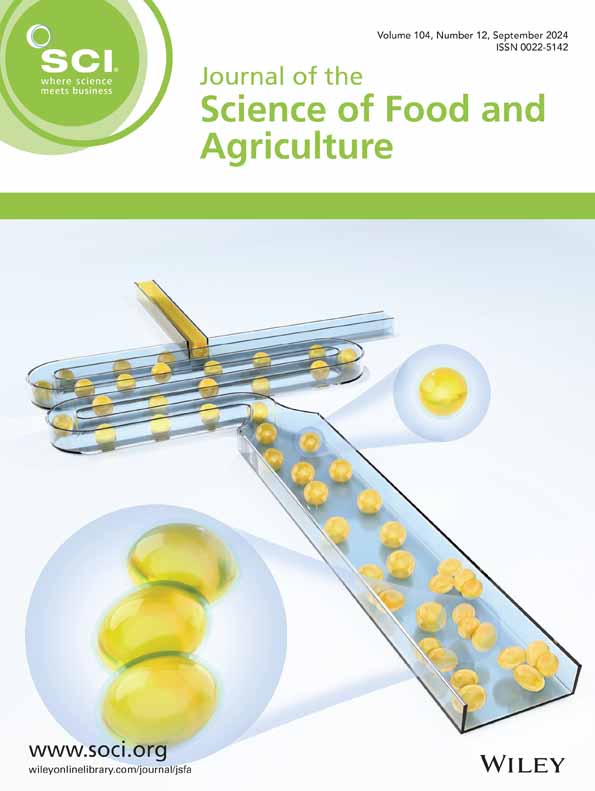Characterization and monitoring of changes during lactation in the profile of multiple bioactive compounds of milk from grazing mares
Abstract
BACKGROUND
Mare milk has often been considered a food product with potential functional properties. However, the bioactive compound composition of mare milk, including vitamins and other minor bioactive compounds, as well as factors affecting this composition have scarcely been studied. Therefore, the present study aimed to characterize the changes during lactation in the content of water- and fat-soluble vitamins and total polyphenols, and the total antioxidant capacity of mare milk from semi-extensive farms. A total of 310 individual milk samples from 18 mares belonging to three commercial farms and 12 lactation times were analyzed. Ascorbic acid (vitamin C), thiamine (vitamin B1), riboflavin (vitamin B2), nicotinic acid and niacinamide (vitamins B3), pantothenic acid (vitamin B5), pyridoxal and pyridoxine (vitamins B6), folic acid (vitamin B9), cyanocobalamin (vitamin B12), tocopherols and tocotrienols (vitamin E) and retinol and retinyl esters (vitamin A) were quantified using liquid chromatography. Total polyphenols and antioxidant capacity assays were analyzed using spectrophotometry.
RESULTS
The concentration of most bioactive compounds tended to decline as lactation progressed, with the exception of polyphenols and the total antioxidant capacity that oscillated during lactation. On the other hand, the effect of the different semi-extensive management of the farms was only significant for vitamin B3 content.
CONCLUSION
To the best of our knowledge, the present study provides the most in-depth description of the vitamin profile of mare milk as well as new insights into polyphenol content and antioxidant capacity of mare milk. © 2024 The Author(s). Journal of the Science of Food and Agriculture published by John Wiley & Sons Ltd on behalf of Society of Chemical Industry.


 求助内容:
求助内容: 应助结果提醒方式:
应助结果提醒方式:


